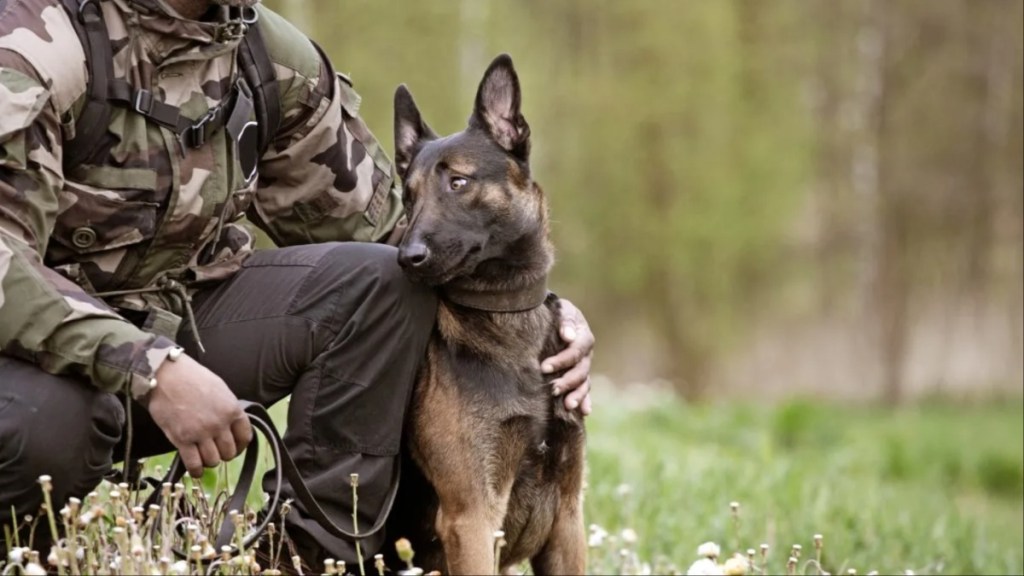United States Army Airborne Explosive Ordnance Disposal (EOD) technicians recently played a vital role in supporting Military Working Dog (MWD) training exercises. These EOD technicians engaged in collaborative training sessions with MWD teams at Fort Liberty, North Carolina. This joint training initiative significantly enhanced the readiness levels of the EOD paratroopers and the Military Working Dog teams.
US Army explosive experts, EOD techs, and Military Working Dog unit train together at Fort Liberty
At Fort Liberty, the Military Working Dog unit trained with the U.S. Army Airborne Explosive Ordnance Disposal technicians, as DVIDS Hub reports. Collaborating with MWD teams from the 550th MWD Detachment, EOD technicians from the 722nd Ordnance Company conducted comprehensive training sessions.
Capt. Eugene E. Osborne, the commander of the EOD company, said, “The highlight of the training with the 550th MWD was being able to integrate interoperability of EOD paratroopers and K-9s and their handlers.” Continuing, he added, “The senior K-9 handler reached out to us to help facilitate training for two K-9 teams poised to move forward and support enduring missions overseas.”
Additionally, MWD handler Sgt. Martin E. Daniels noted the objective behind the training session. In his words, “The goal behind this training was to give the experience to our EOD paratroopers of working alongside a dual-purpose ‘fur missile’ and to instill confidence in both parties of their capabilities.”
Moreover, he explained that the training involved a basic area search, where the K-9 had to swiftly clear an area. In situations requiring further investigation, an EOD technician would proceed to examine the scene.
According to Osborne, the training deepened the understanding of EOD paratroopers regarding the capabilities of MWD teams and their rapid deployment. In addition, it provided valuable insights for MWD handlers on potential hazards and effective methods to navigate them while leading the dog. Therefore, such training enhances the capabilities of both units, fostering more robust operational readiness.








